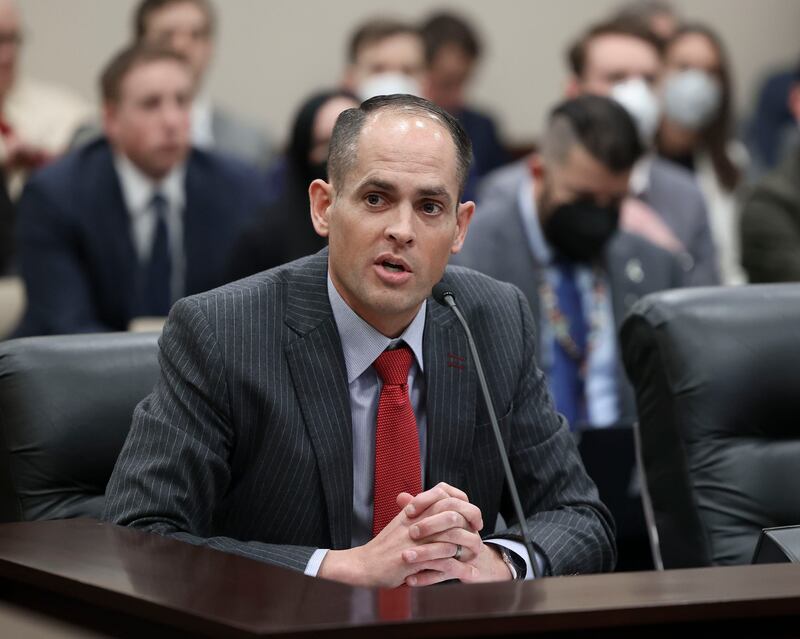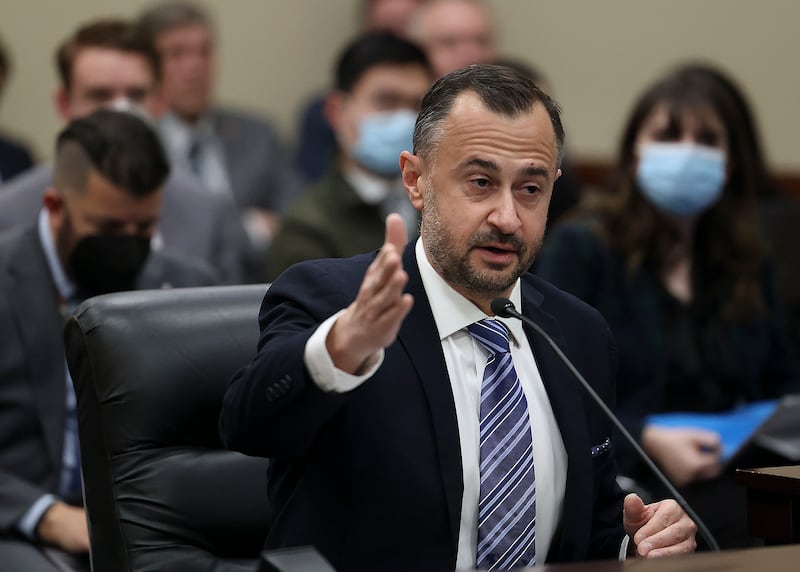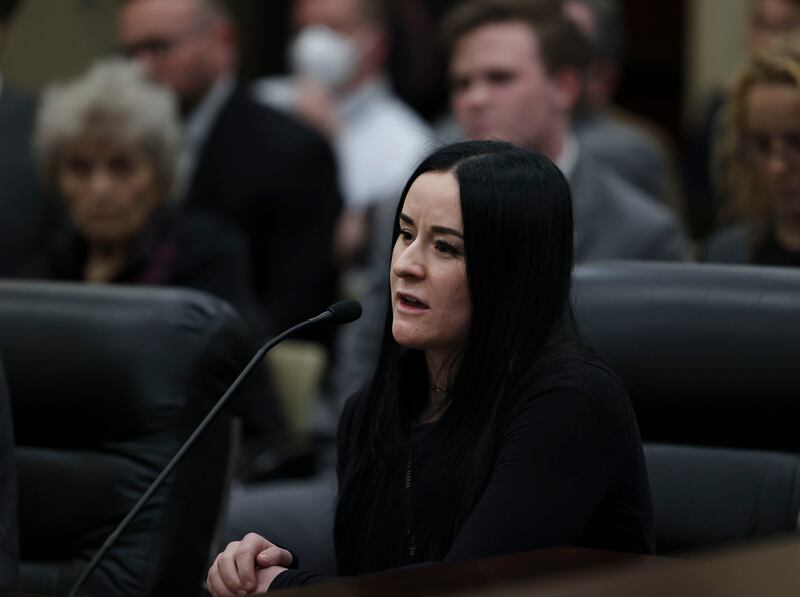A rules resolution to limit media access in the Utah Senate passed its initial hearing on Wednesday, despite concerns from media members that it would make it more difficult to report on Capitol Hill.
SR1, sponsored by Sen. Mike McKell, R-Spanish Fork, stipulates that news media are only allowed access to the Senate floor, hallways and lounge if they have permission from a Senate media designee and must “promptly exit the designated area after completing the specific interview.”
It would also require that photographers obtain permission from a committee chairperson before being allowed to stand behind the dais in order to photograph witnesses or public commenters who are addressing the committee.
Traditionally, members of the news media have been allowed on the floor of both the House and Senate in order to ask questions of lawmakers. Although some areas are not open to the public, credentialed journalists have previously been allowed access. That changed with COVID-19 — when the Legislature implemented masking and testing requirements, they also limited access to the floor.
While testing and masks are no longer required, the media access rule is now one Senate vote away from being permanent.
The House and Senate hold regular press conferences when the Legislature is in session, but some journalists have expressed concern that limiting access for the media outside of press briefings would make it harder for the public to see what their elected officials are doing.

During Wednesday’s Senate Business and Labor Committee hearing on the bill, McKell said that the bill isn’t an attempt to restrict media members from doing their job, saying they are “always welcome in our committee rooms.”
Sen. Curt Bramble, R-Provo, who chairs the committee, said the issue is a matter of security for lawmakers. While he said he has only seen two instances of media members disrupting the work of a committee during his two decades on the Hill, he believes the resolution would give leaders the ability to take steps if needed.
“We regularly legislate to the exception,” he said. “Just as reporters regularly report the exception that makes headlines. They don’t report the run of the mill. This doesn’t address the average professional member of the media ... but it gives the chair the authority to manage the committee room if they need to.”
Senators cited the Jan. 6 insurrection and recent committee hearings that have drawn crowds driven by misinformation as examples of potential threats to lawmakers.
“I can pinch myself every day that I get to work in the peoples’ house ... I’m very cognizant of that fact,” said Sen. Todd Weiler, R-Woods Cross. “And at the same time, I just want to revisit the point ... that the barriers of civility and discourse that have been respected in this state — in this country — for years ... are changing, and they’re changing rapidly.”
SR1 passed committee easily — Sen. Gene Davis, D-Salt Lake City, was the only one in opposition — but the discussion was anything but smooth. In addition to debating who qualifies as a journalist, senators seemed eager to use the hearing as an opportunity to air their grievances with the media in general.
Katie McKellar, an assistant editor and political reporter for the Deseret News, spoke in opposition of the rule, explaining how it could make it nearly impossible for reporters to clear the required hurdles in time to talk to lawmakers.
“I hear a lot up here in conversations with lawmakers that your goal is to pass good public policy. ... You can’t make good policy without a healthy, free flow of information,” she told the committee.
“We all know how hectic the session can get. ... When the Senate gets this fast paced there may not be time to jump through those additional hoops to get permission,” she said.
Often reporters are looking for simple, clarifying answers that aren’t worth setting up a one-on-one interview or waiting until a press conference to ask about.
“We’re not interested in ‘gotcha’ journalism,” McKellar said. “We are interested in unfiltered, in-person access to lawmakers so we can ask quick, often clarifying questions. Free flow of information is crucial to getting the story right — and that’s what we value most.”
She was joined by other reporters, including KUTV’s news director Mike Friedrich, FOX 13’s Ben Winslow, Becky Bruce, news director for KSL NewsRadio, and Salt Lake Tribune Executive Editor Lauren Gustus.
The provision that requires permission in order to be on the Senate floor or in the hallways is one that primarily impacts print or web media.





